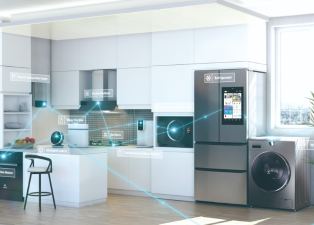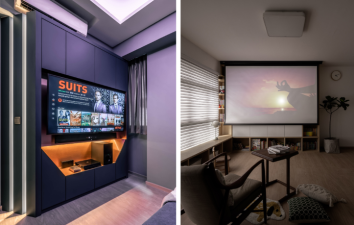How Smart Appliances Are Changing Daily Life
Smart homes have quietly entered our lives. With their practicality and convenience, unique charm and advantages, they are gradually changing our lives and improving our quality of life.
With the continuous advancement of technology and the growing number of smart home products, our home life will become more beautiful, intelligent, environmentally friendly, and safer.
What exactly is the "smart" in smart home appliances?
The intelligence in smart home appliances lies in their self-regulating and automated functions, which rely on AI. This means they are no longer simply controlled via a mobile app; more importantly, they have the ability to learn user habits, sense environmental changes, and make adjustments based on data.

Advantages of Smart Home Appliances
- Saving Time and Energy: The biggest benefit of smart home appliances is that they save us time and energy. For example, with a smart washing machine, you don't have to wait for the machine to finish washing before opening the door. You can remotely control it from your phone, starting or pausing the washing process anytime, anywhere. Smart robot vacuums can automatically clean your floor while you're away, leaving you with a clean and tidy home when you return.
- Improving Quality of Life: Smart home appliances can also improve our quality of life. For example, smart air conditioners can automatically adjust their operating mode based on indoor temperature and humidity, maintaining a comfortable indoor environment. Smart speakers can play your favorite music through voice control, providing you with a pleasant listening experience.
- Enhanced Security and Convenience: Smart home appliances can also enhance home security and convenience. For example, smart door locks can be unlocked with a password, fingerprint, or mobile app, improving home security. Smart surveillance cameras allow you to monitor your home from anywhere via your phone, ensuring the safety of your family and property.
- Promote Energy Conservation and Emission Reduction: Smart home appliances also contribute significantly to energy conservation. Through intelligent control systems, they can intelligently adjust energy consumption based on actual needs, achieving energy conservation and emission reduction goals. For example, smart lighting systems can automatically adjust brightness based on light levels and environmental changes, saving energy while extending the life of light bulbs.
- Provide Personalized Services: Smart home appliances can also provide personalized services, tailored to user needs and habits. For example, smart refrigerators can recommend recipes based on your shopping list and ingredient inventory, and provide ingredient purchasing suggestions. Smart rice cookers can adjust cooking parameters based on your taste and health needs, creating delicious meals just for you. 6. Smart home appliances can also promote home connectivity, enabling intelligent linkage between household devices. For example, a smart home hub system can control all smart devices through a unified app, enabling information sharing and interaction between devices, making family life more convenient and comfortable.


